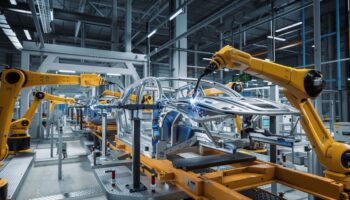In the era of rapid technological advancement, the integration of Augmented Intelligence (AI) is reshaping the landscape of decision-making. This article unravels the intricacies of Augmented Intelligence and its transformative role in enhancing the decision-making process across various domains.
- Defining Augmented Intelligence
Augmented Intelligence, often distinguished from Artificial Intelligence, is a symbiotic relationship between humans and machines. Instead of replacing human intelligence, Augmented Intelligence seeks to enhance and amplify human cognitive abilities. It leverages advanced technologies, including machine learning and data analytics, to provide valuable insights and support decision-makers in their judgment and actions.
- Data-Driven Decision-Making
At the core of Augmented Intelligence is the utilization of vast datasets to inform decision-making processes. AI algorithms analyze extensive data sets, extracting patterns and trends that may elude human observation. This data-driven approach empowers decision-makers with a comprehensive understanding of the current landscape, enabling informed and strategic choices.
- Enhancing Human Cognitive Abilities
Augmented Intelligence acts as a force multiplier for human intelligence, extending our cognitive capabilities beyond traditional boundaries. Through machine learning algorithms, it identifies relevant information, predicts outcomes, and even automates routine decision-making tasks. This allows human decision-makers to focus on complex, strategic thinking, fostering a synergy between human intuition and machine precision.
- Risk Assessment and Mitigation
In industries where risk is inherent, such as finance and healthcare, Augmented Intelligence plays a crucial role in risk assessment and mitigation. By analyzing historical data, identifying patterns, and predicting potential risks, AI systems contribute to more accurate risk evaluations. This capability aids decision-makers in developing proactive strategies to mitigate risks and ensure better outcomes.
- Personalized Decision Support Systems
Augmented Intelligence tailors decision support systems to individual needs, providing personalized insights. In healthcare, for example, it can assist clinicians by offering recommendations based on a patient’s medical history and current conditions. This personalized approach ensures that decisions align with specific contexts, fostering more effective and tailored solutions.
- Streamlining Business Operations
Businesses leverage Augmented Intelligence to optimize operational efficiency and decision-making. From supply chain management to customer service, AI-driven systems analyze data in real-time, identifying bottlenecks, predicting demand, and improving overall performance. This streamlined approach not only enhances productivity but also allows businesses to adapt swiftly to changing conditions.
- Human-Machine Collaboration in Decision-Making
The essence of Augmented Intelligence lies in collaboration between humans and machines. Rather than replacing human decision-makers, AI systems work alongside them, providing insights and suggestions that humans may not have considered. This collaborative model ensures a harmonious blend of human creativity, intuition, and critical thinking with the analytical power of AI.
- Continuous Learning and Adaptation
One of the distinguishing features of Augmented Intelligence is its ability to learn and adapt continuously. Machine learning algorithms evolve based on feedback and new data, refining their decision-making capabilities over time. This iterative learning process ensures that the insights provided by AI systems remain relevant and adaptive to dynamic environments.
As Augmented Intelligence continues to evolve, its impact on decision-making processes across diverse sectors becomes increasingly profound. From data-driven insights to personalized decision support and risk mitigation, Augmented Intelligence stands as a testament to the transformative power of human-machine collaboration. In this era of digital innovation, the integration of Augmented Intelligence is not just a technological advancement; it is a paradigm shift in how decisions are made, bringing forth a new era of intelligent and informed choices.






